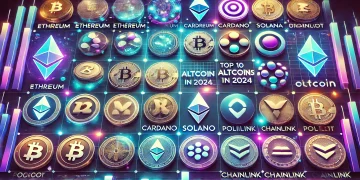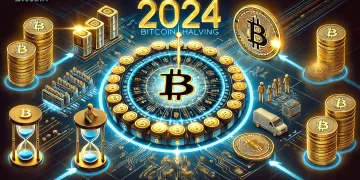International payments have long been dominated by traditional financial systems that are centralized, slow, and expensive. Cross-border transactions typically require several intermediaries, which leads to delays, high fees, and a lack of transparency. In recent years, blockchain technology has emerged as a potential solution to these issues, promising to revolutionize the way money moves across borders. At the forefront of this movement is Ripple, a blockchain-based company that aims to decentralize and modernize international payments through its cryptocurrency XRP and its RippleNet platform.
This article explores Ripple’s role in decentralizing international payments, its key innovations, and how it is transforming the traditional financial system.
Understanding the Traditional Cross-Border Payment System
Before delving into Ripple’s innovations, it’s important to understand the inefficiencies of the traditional cross-border payment system. Currently, most international payments rely on the SWIFT (Society for Worldwide Interbank Financial Telecommunication) network, which connects over 11,000 financial institutions worldwide. While SWIFT is widely used, it has several limitations:
- Slow Transaction Times: Cross-border payments often take several days to complete due to the need for multiple intermediaries and correspondent banks to process the transaction.
- High Fees: Each intermediary involved in the transaction charges a fee, leading to significant costs, particularly for smaller transactions.
- Lack of Transparency: It’s difficult for businesses and individuals to track payments in real time, as each intermediary operates independently, often causing delays or errors.
These inefficiencies are particularly problematic in an increasingly globalized economy, where businesses and individuals demand faster, cheaper, and more transparent payment solutions. This is where Ripple comes into play.
What is Ripple?
Ripple is both a company and a digital payment protocol that was created to address the problems associated with traditional international payments. Founded in 2012, Ripple developed RippleNet, a blockchain-based payment platform that allows for fast, secure, and low-cost cross-border transactions. Ripple also created its own digital currency, XRP, which is used to facilitate transactions on the network.
Ripple’s primary goal is to improve the efficiency of international payments by offering a decentralized alternative to traditional banking systems. While RippleNet is a centralized platform operated by Ripple Labs, the underlying principles of blockchain technology—transparency, security, and decentralization—are embedded into its system.
RippleNet: The Backbone of Ripple’s Payment Network
At the core of Ripple’s offering is RippleNet, a decentralized global network of banks and financial institutions that use Ripple’s technology to process payments. RippleNet offers several advantages over traditional cross-border payment systems, including speed, cost-efficiency, and real-time settlement.
Instant Settlement
One of RippleNet’s most significant innovations is its ability to offer near-instant settlement of cross-border transactions. Unlike SWIFT, which can take days to process payments, RippleNet uses its blockchain technology to settle transactions in just a few seconds. This speed is made possible through the use of a consensus algorithm that verifies transactions across the network without the need for intermediaries.
For financial institutions, this means they can provide their customers with faster, more efficient services, while businesses and individuals benefit from quicker access to funds.
Lower Transaction Costs
By eliminating the need for multiple intermediaries, RippleNet significantly reduces the cost of cross-border transactions. Traditional systems often involve several banks, each taking a fee, which can result in high costs for users. RippleNet simplifies the process by using its own network to connect directly with participating institutions, cutting out unnecessary middlemen and reducing fees.
Moreover, Ripple’s use of XRP as a bridge currency further reduces costs. Instead of requiring each bank to hold multiple foreign currency accounts, XRP allows for direct currency exchange, streamlining the process and cutting down on exchange rate fees.
Improved Transparency and Tracking
Another advantage of RippleNet is the transparency it provides. In traditional cross-border payments, it’s often difficult to track a payment once it’s been initiated. RippleNet offers real-time tracking of payments, allowing senders and recipients to see the status of their transactions at any point. This increased transparency builds trust between parties and reduces the risk of errors or lost payments.
The Role of XRP in Cross-Border Payments
While RippleNet can function independently of XRP, the cryptocurrency plays a crucial role in enhancing the network’s efficiency, especially for liquidity management. XRP acts as a bridge currency, allowing financial institutions to convert one fiat currency into XRP, and then XRP into another fiat currency. This process, known as “on-demand liquidity” (ODL), eliminates the need for pre-funded accounts, which are typically required in traditional payment systems.
On-Demand Liquidity (ODL)
One of the key innovations that Ripple has brought to the international payments space is its ODL solution. ODL uses XRP to enable instant liquidity for cross-border transactions without requiring banks to hold foreign currencies in Nostro or Vostro accounts. In traditional systems, banks need to maintain large reserves of different currencies to facilitate international payments, which ties up capital and increases costs.
ODL eliminates this need by using XRP to provide liquidity on demand. For example, if a bank in the U.S. wants to send money to a bank in Japan, it can convert U.S. dollars into XRP, send the XRP across the Ripple network, and then convert the XRP into Japanese yen at the receiving end. This process is completed in seconds and significantly reduces the cost and complexity of cross-border payments.
By leveraging XRP for liquidity, RippleNet participants can reduce the reliance on pre-funded accounts, making cross-border payments faster, cheaper, and more efficient.
Decentralization vs. Centralization in Ripple’s System
One of the common criticisms of Ripple is that, unlike fully decentralized networks like Bitcoin and Ethereum, RippleNet is seen as relatively centralized, as Ripple Labs controls the development and operation of the network. However, Ripple has been working to decentralize its validator network over time, making the system more open and resilient.
The consensus mechanism used by RippleNet is not the same as the proof-of-work or proof-of-stake systems used by other blockchains. Instead, Ripple relies on a unique consensus algorithm where trusted validators agree on the order and validity of transactions. While Ripple initially controlled many of these validators, the company has gradually reduced its influence by encouraging third-party validators to participate in the network. As more independent validators join, RippleNet becomes more decentralized, increasing its security and trustworthiness.
Moreover, the use of XRP as a bridge currency adds an element of decentralization to the system, as it operates independently of any single authority and is traded on numerous cryptocurrency exchanges worldwide.
Ripple’s Partnerships with Financial Institutions
One of Ripple’s biggest strengths is its strong relationships with traditional financial institutions. Unlike many other blockchain projects that operate in opposition to traditional banking, Ripple has worked to integrate its technology into existing financial systems. Ripple has formed partnerships with hundreds of banks, payment providers, and financial institutions worldwide, including major players like Santander, Standard Chartered, and SBI Holdings.
These partnerships are critical to Ripple’s success because they allow the company to provide its blockchain technology as a real-world solution for international payments. By collaborating with traditional institutions, Ripple is helping to bridge the gap between the old financial system and the new world of decentralized finance.
These partnerships also bring legitimacy to Ripple’s platform, as many of the world’s largest financial institutions are now using RippleNet to improve their cross-border payment services.
Ripple’s Role in CBDCs (Central Bank Digital Currencies)
Another area where Ripple is playing a significant role is in the development of central bank digital currencies (CBDCs). CBDCs are digital versions of national currencies issued by central banks, and many countries are exploring or developing CBDCs as a way to modernize their financial systems.
Ripple has positioned itself as a key player in the CBDC space, offering its technology to help central banks create and manage their digital currencies. Ripple’s ledger is well-suited for CBDCs because it provides the scalability, security, and interoperability needed for these digital assets to function in a global economy.
By working with central banks, Ripple is helping to decentralize international payments even further, as CBDCs have the potential to reduce reliance on traditional payment systems and make cross-border transactions faster and more efficient.
Regulatory Challenges and Legal Battles
Despite its innovations, Ripple has faced significant regulatory challenges, particularly in the United States. The ongoing lawsuit filed by the U.S. Securities and Exchange Commission (SEC) against Ripple Labs claims that XRP is an unregistered security. This legal battle has raised questions about the future of XRP and Ripple’s role in the financial system.
However, Ripple has continued to expand its operations internationally, finding more success in regions like Asia and Europe, where regulatory environments are more favorable. The outcome of the SEC lawsuit will likely have a major impact on Ripple’s future in the U.S., but regardless of the result, Ripple’s technology and its global partnerships ensure that it will remain a key player in the international payments space.
The Future of Ripple and Decentralized Payments
As the global economy continues to digitalize, the demand for faster, cheaper, and more efficient cross-border payment solutions will only increase. Ripple is uniquely positioned to meet this demand with its combination of blockchain technology, partnerships with financial institutions, and innovative solutions like XRP and ODL.
Ripple’s role in the decentralization of international payments is significant. By offering a faster, cheaper, and more transparent alternative to traditional payment systems, Ripple is helping to democratize global finance and bring the benefits of blockchain technology to the world. As Ripple continues to evolve and as regulatory clarity improves, its influence on the future of international payments will likely grow, making it a central figure in the ongoing revolution of decentralized finance.
Conclusion
Ripple is playing a transformative role in decentralizing international payments by leveraging blockchain technology to make cross-border transactions faster, more affordable, and transparent. Through its RippleNet platform, the use of XRP for on-demand liquidity, and strategic partnerships with financial institutions, Ripple is addressing the inefficiencies of the traditional payment system. While Ripple’s centralized aspects have raised some concerns, the company is moving toward greater decentralization, ensuring the long-term security and viability of its network.
Ripple’s continued innovation and collaboration with the financial industry will likely shape the future of international payments, as it bridges the gap between traditional banking and the decentralized future of finance.


















